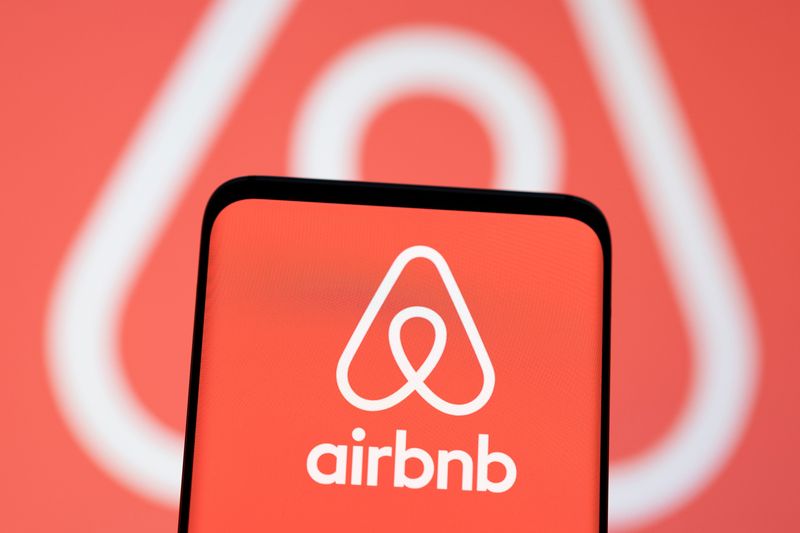Select Language

By Doyinsola Oladipo
NEW YORK (Reuters) - Airbnb Inc on Thursday filed a lawsuit against New York City over a new law it called a "de facto ban" against short-term rentals set to go into effect in July, which the company says will limit the number of people who can host rentals in the city.
City councils around the United States are increasingly introducing ordinances to regulate short-term rentals. Some of them require hosts to obtain licenses and pay registration fees or limit short-term rentals in business districts.
The company's filing in the New York State Supreme Court says New York's city council, through legislation passed in 2022, effectively implemented "its most extreme and oppressive regulatory scheme yet, which operates as a de facto ban against short-term rentals in New York."
Airbnb, in a letter to hosts, said "today’s filing comes only after exhausting all available paths for a sensible solution with the City."
The law, according to the filing, will make it more difficult for hosts to do business, requiring them to register with the New York City Mayor's Office of Special Enforcement (OSE) and to certify that they will comply with "the maze of complex regulations" for zoning, multiple dwelling law and housing maintenance code as well as construction code.
The short-term rental company is requesting that the court blocks the enforcement of "Local Law 18".
OSE application reviews will ensure "that only a miniscule number of hosts will ever be granted a registration," Airbnb said in the filing.
A New York City spokesperson said in a statement that the administration of Mayor Eric Adams "is committed to protecting safety and community livability for residents, preserving permanent housing stock, and ensuring our hospitality sector can continue to recover and thrive."
The Mayor's office said it will review the lawsuit.
Airbnb said that in the first week of July, more than 5,500 short-term rentals are reserved to host more than 10,000 guests in New York City.
The company said in the filing a previous law which went into effect in 2021 prompted 29,000 hosts to leave the short-term rental market in New York.
The number of short-term rental listings available in New York City increased 27% year-over-year in April 2023 but listing counts are 32% below 2019 levels, according to short-term rental analytics company AirDNA.
"The vast majority of listings in New York are either private or shared rooms, commercial properties, or listings that only support long-term stays," said AirDNA Chief Economist, Jamie Lane.
Airbnb’s annual net revenue in New York City in 2022 was $85 million, according to the filling.

